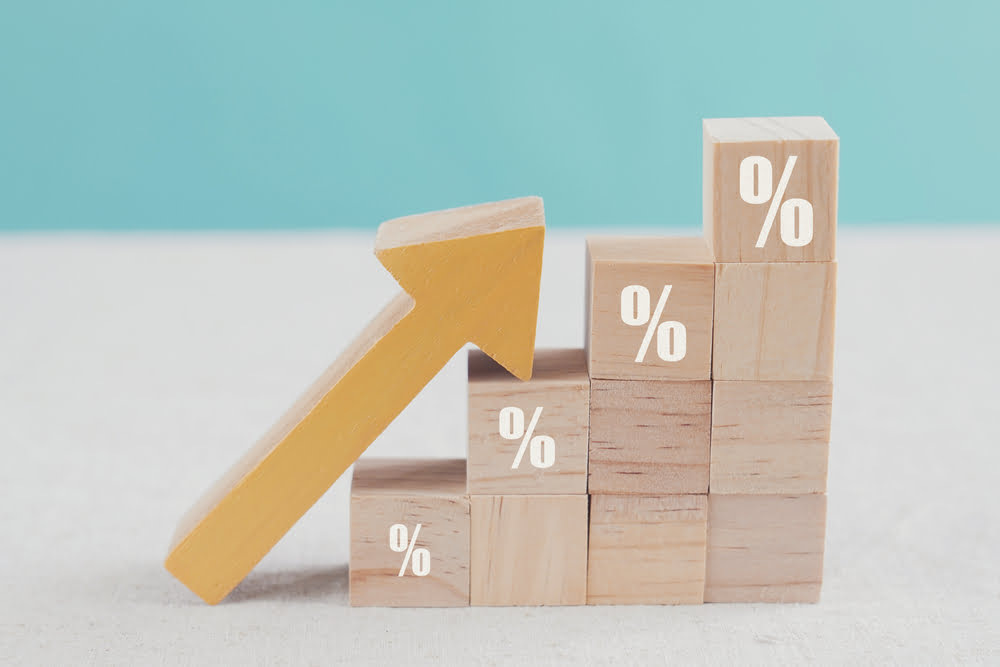As the economy continues to improve, interest rates are on the rise. This can have a significant impact on homeowners who have variable rate mortgages or are looking to refinance their homes. Managing increasing interest rates can seem daunting, but there are steps homeowners can take to mitigate the effects.
The first step in managing increasing interest rates is to understand how they will affect your mortgage payments. Even a small increase in interest rates can result in a significant increase in monthly payments. Homeowners should review their mortgage agreements and calculate how much their payments will increase with each percentage point increase in interest rates. This will help them prepare for potential increases and make adjustments to their budgets if necessary.
Another way to manage increasing interest rates is to consider refinancing to a fixed rate mortgage. This will provide stability and predictability in monthly payments, regardless of any future interest rate increases. Homeowners should shop around for the best rates and terms, and consider working with a mortgage broker or financial advisor to find the best option for their individual situation.
- Assessing Your Financial Position
- Strategies to Mitigate Impact
- Adjusting Your Savings and Investments
- Protecting Your Assets
- Long-Term Planning
Assessing Your Financial Position
As interest rates increase, it is important to assess your financial position to determine how you will be impacted. The following factors should be considered:
Income and Expenses
One should evaluate their income and expenses to determine if they have enough money to cover their expenses, including any potential increases in interest rates. This can be done by creating a budget that outlines all income and expenses, including any debts or loans.
Debt and Credit Score
Assessing your debt and credit score is also important. High levels of debt and a poor credit score can make it difficult to obtain loans or refinance existing loans at a lower interest rate. It is recommended to pay off any outstanding debts and improve your credit score before interest rates increase.
Savings and Investments
Having savings and investments can provide a safety net in the event of financial hardship. It is important to have an emergency fund that can cover at least three to six months of expenses. Additionally, investing in low-risk options such as bonds can provide a stable source of income during periods of high interest rates.
By assessing your financial position, you can make informed decisions about how to manage increasing interest rates at home. It is important to be proactive and take steps to improve your financial situation before interest rates rise.
Strategies to Mitigate Impact
When interest rates rise, the cost of borrowing money increases, which can have a significant impact on homeowners. However, there are strategies that can be implemented to mitigate the impact of increasing interest rates.
One effective strategy is refinancing a mortgage to a fixed-rate loan. This will provide stability in monthly payments, as the interest rate will remain the same throughout the life of the loan. Homeowners can also consider making larger payments to pay off the loan faster, which can reduce the overall interest paid.
Another strategy is to pay down high-interest debt, such as credit cards, as quickly as possible. This can reduce the amount of interest paid on outstanding balances and free up more money for other expenses.
Homeowners can also consider adjusting their budget to accommodate higher monthly payments. This may involve cutting back on discretionary spending or finding ways to increase income, such as taking on a part-time job or selling unused items.
Finally, it’s important to stay informed about changes in interest rates and how they may impact personal finances. This can involve regularly checking mortgage rates and consulting with a financial advisor to ensure that the best strategies are being implemented.
By implementing these strategies, homeowners can mitigate the impact of increasing interest rates and maintain financial stability.
Adjusting Your Savings and Investments
As interest rates rise, it’s important to adjust your savings and investments accordingly. Here are a few tips to help you manage:
1. Reconsider Fixed-Rate Investments
Fixed-rate investments, such as certificates of deposit (CDs), may have been a reliable choice when interest rates were low. However, as interest rates increase, the rate you locked in may no longer be competitive. Consider moving your funds to a more flexible investment with a higher yield.
2. Look into High-Yield Savings Accounts
High-yield savings accounts are a great option for those looking for a safe and flexible way to save money. These accounts typically offer higher interest rates than traditional savings accounts, making them a great choice for those looking to earn more on their savings.
3. Diversify Your Investments
Diversifying your investments is always a good idea, but it’s especially important when interest rates are rising. Consider investing in a mix of stocks, bonds, and other assets to help spread out your risk and potentially earn higher returns.
4. Consider Refinancing Your Mortgage
If you have a mortgage, rising interest rates can mean higher monthly payments. Consider refinancing your mortgage to lock in a lower interest rate and potentially save money over the life of your loan.
By adjusting your savings and investments, you can help manage the impact of rising interest rates on your finances.
Protecting Your Assets
As interest rates rise, it’s important to protect your assets from potential losses. Here are some tips to help you safeguard your finances:
1. Refinance Your Mortgage
If you have a variable-rate mortgage, consider refinancing to a fixed-rate mortgage. This will protect you from future interest rate hikes and provide stability to your monthly payments.
2. Diversify Your Portfolio
Diversifying your investments can help mitigate risk and protect your assets. Consider investing in a mix of stocks, bonds, and other assets that are not highly correlated with each other.
3. Keep an Eye on Your Debt
As interest rates rise, so does the cost of borrowing. It’s important to keep an eye on your debt and make sure you’re not taking on too much. Consider paying off high-interest debt first and avoiding new debt if possible.
4. Build an Emergency Fund
An emergency fund can provide a buffer in case of unexpected expenses or a loss of income. Aim to save at least six months’ worth of living expenses in a liquid savings account.
5. Consider Professional Advice
If you’re unsure about how to protect your assets in a rising interest rate environment, consider seeking the advice of a financial professional. They can help you assess your risk tolerance and develop a personalized plan to safeguard your finances.
Long-Term Planning
As interest rates rise, it becomes increasingly important to plan for the long-term. Homeowners should consider the following strategies:
- Refinancing: Homeowners who have adjustable-rate mortgages (ARMs) should consider refinancing to a fixed-rate mortgage. This will provide stability in monthly payments and protect against future rate increases.
- Paying down debt: High-interest debt, such as credit card balances, should be paid down as quickly as possible. This will free up cash flow and reduce the impact of rising interest rates.
- Building an emergency fund: Homeowners should aim to have at least six months’ worth of living expenses saved in an emergency fund. This will provide a cushion in the event of a job loss or unexpected expenses.
- Investing in long-term assets: Homeowners should consider investing in long-term assets, such as stocks or real estate, to hedge against inflation and potentially earn higher returns.
It is important to note that these strategies may not be suitable for everyone. Homeowners should consult with a financial advisor to determine the best course of action for their individual situation.





